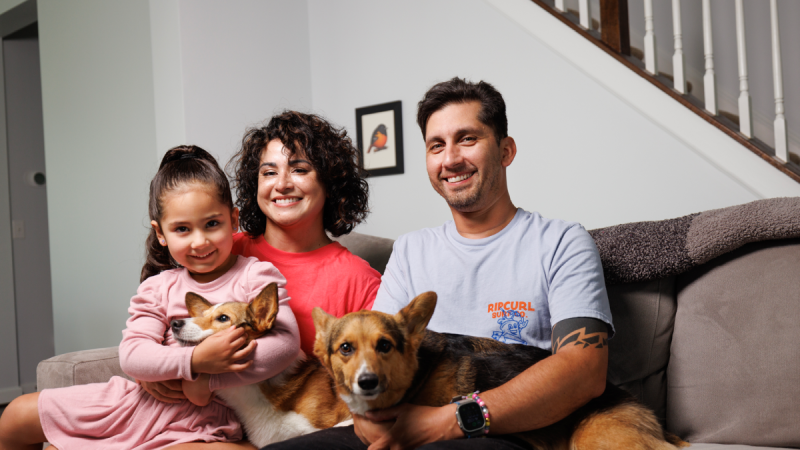
At age 34, Iris Bugbee, of Fuquay-Varina, NC, faced more than a breast cancer diagnosis. She juggled full-time work as a speech-language pathologist while raising her two-year-old daughter, Mila. After taking six weeks off for surgery, she continued working through cancer treatments, adjusting her hours but never stepping away.
She fit in radiation appointments at Duke Women’s Cancer Care Raleigh between her patient sessions. “I’d go to work, travel to Raleigh, and then come back and see the rest of my patients,” she said. Balancing treatment, her patients, and parenting, “I didn’t think a whole lot about my own treatment and diagnosis.”
A year after her mastectomy, a nurse invited her to join a clinical trial testing a structured support program for young adult cancer survivors. Bugbee agreed, hoping to regain strength and she saw it as a good source of motivation. Before surgery, she exercised regularly, but since then, she had struggled with cording syndrome which limited mobility in her right arm and made everyday tasks like picking up her daughter or typing at work challenging.
The program guided her through goal setting, gradual strength-building, and self-compassion. “That’s when I started walking, stretching, and slowly rebuilding,” she said.
Beyond physical recovery, the sessions helped her process her experience. The online support group felt more like conversations with peers than a mandatory class, and psychologists who ran the program made sharing easier.
Caroline Dorfman, PhD, a clinical psychologist at the Duke Cancer Institute and an associate professor in psychiatry and behavioral sciences, designed the 10-week program to help young adults in this vulnerable phase navigate post-treatment challenges and successfully manage their new lives as cancer survivors.